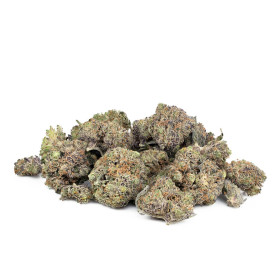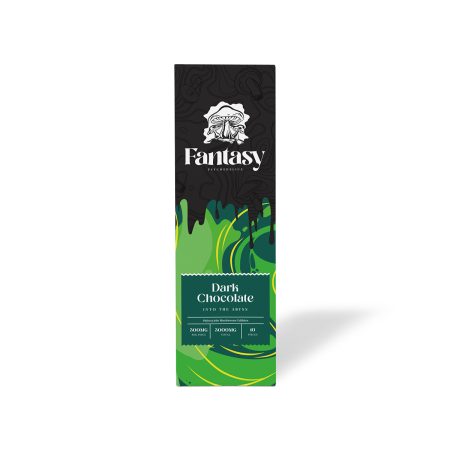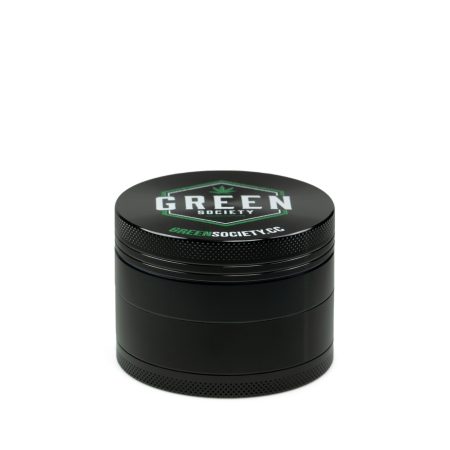Marijuana
Top Ways to Reduce Stress: A Cannabis User’s Guide
Stress touches every part of life and it can seriously hit both your mind and body. Think about this. More than 95 percent of cannabis users in a University of New Mexico study reported feeling immediate relief from stress, dropping their stress by about 4 points on a 10 point scale. Here is what might surprise you. Some strains of cannabis can actually make stress worse if you pick the wrong one. So finding the right approach is not just about lighting up. It is about knowing how to match cannabis with lifestyle changes that really work together.
Table of Contents
- Understanding Stress And Its Impact
- How Cannabis Can Help Reduce Stress
- Choosing The Right Cannabis Strains
- Complementary Tips: Lifestyle Habits For Stress Relief
Quick Summary

| Takeaway | Explanation |
|---|---|
| Understand stress’s physiological effects | Recognize how stress hormones affect your body, leading to physical and emotional health issues. |
| Explore cannabis’s potential to reduce stress | Research indicates that cannabinoids can help modulate stress responses, promoting emotional balance and relaxation. |
| Prioritize strain selection for stress relief | Choose cannabis strains high in CBD and low in THC to minimize anxiety while promoting relaxation. |
| Incorporate holistic lifestyle habits | Combine cannabis use with relaxation techniques, nutrition, and exercise to enhance overall stress management. |
| Maintain a consistent sleep routine | Ensure quality sleep to bolster stress resilience and overall mental wellness by establishing a relaxing bedtime regimen. |
Understanding Stress and Its Impact
Stress is an unavoidable aspect of human experience that impacts our mental and physical well-being in profound ways. Understanding its mechanisms and consequences becomes crucial for developing effective management strategies, especially for cannabis users seeking holistic wellness approaches.
The Physiological Landscape of Stress
When stress occurs, the human body launches a complex biological response involving multiple systems. The National Institute of Mental Health explains that stress triggers the release of hormones like cortisol and adrenaline, which prepare the body for potential threats. While this response was evolutionarily beneficial for survival, chronic stress can lead to significant health complications.
The stress response initiates several immediate physiological changes. Heart rate increases, breathing becomes more rapid, and muscles tense. Blood flow redirects to critical organs, preparing the body for potential action. These reactions were historically designed to help humans respond to immediate physical dangers, but in modern contexts, they often persist unnecessarily.
Psychological and Emotional Dimensions
Beyond physical manifestations, stress profoundly influences psychological states. Chronic stress can erode mental resilience, contributing to conditions like anxiety and depression. Johns Hopkins Medicine reports that prolonged stress can fundamentally alter brain chemistry, potentially disrupting emotional regulation and cognitive functioning.
Individuals experiencing persistent stress often report decreased concentration, mood fluctuations, and reduced overall quality of life. These psychological impacts can create a self-reinforcing cycle where stress generates additional emotional strain, making it increasingly challenging to maintain mental equilibrium.
Long-Term Health Implications
The cumulative effect of unmanaged stress extends far beyond immediate discomfort. Chronic stress has been linked to numerous serious health conditions, including cardiovascular disease, compromised immune function, and metabolic disorders. Persistent elevated stress hormones can accelerate cellular aging, potentially increasing vulnerability to various chronic health challenges.
Recognizing stress as a complex, multifaceted experience requires a comprehensive approach. While cannabis may offer potential stress management benefits, it represents just one component of a holistic wellness strategy. Effective stress reduction involves understanding individual triggers, developing adaptive coping mechanisms, and maintaining a balanced lifestyle that supports both mental and physical resilience.
How Cannabis Can Help Reduce Stress
Cannabis has emerged as a potential natural alternative for managing stress, offering unique therapeutic properties that interact with the body’s endocannabinoid system. Understanding how cannabis can mitigate stress requires exploring its complex mechanisms and nuanced effects on mental and physiological processes.
Cannabinoid Interactions and Stress Response
Research from Washington State University indicates that cannabis can significantly reduce short-term levels of depression, anxiety, and stress. The plant’s primary compounds, particularly cannabinoids like THC and CBD, interact with the body’s stress regulation systems, potentially modulating neurochemical responses.
Specifically, cannabinoids bind to receptors in the brain’s limbic system, which plays a crucial role in emotional processing. This interaction can help regulate the release of stress hormones, potentially providing a more balanced psychological state. Different cannabis strains and compositions offer varied effects, making personalized selection important for effective stress management.
Stress Reduction Mechanisms
The University of New Mexico study revealed that over 95% of cannabis users experienced an immediate reduction in stress, with an average decrease of approximately 4 points on a 0-10 scale. This significant finding suggests cannabis’s potential as a rapid stress intervention tool.
The stress-reducing properties stem from cannabis’s ability to:
- Modulate neurotransmitter release: Helping balance chemicals associated with stress and anxiety
- Promote relaxation: Reducing muscle tension and promoting a sense of calm
- Interrupt stress cycles: Potentially breaking negative psychological patterns
Responsible Cannabis Consumption for Stress Management
A review published in the National Center for Biotechnology Information highlights that while cannabis is commonly used as a stress-coping strategy, responsible consumption is paramount. Not all cannabis experiences are identical, and individual responses can vary significantly.
Effective stress management through cannabis requires careful consideration of dosage, strain selection, and personal tolerance. Factors such as THC to CBD ratios, consumption method, and individual biochemistry play critical roles in determining the stress-reduction potential. Users should approach cannabis as part of a holistic wellness strategy, complementing other stress management techniques like meditation, exercise, and professional mental health support.
Choosing the Right Cannabis Strains
Selecting an appropriate cannabis strain for stress reduction requires careful consideration and understanding of individual physiological responses. Not all cannabis varieties produce identical effects, making strain selection a nuanced process that demands thoughtful evaluation.
Understanding Strain Characteristics
Harvard Medical School explains that different cannabis types produce varying effects. Indica strains are typically associated with relaxation and stress relief due to their sedative properties, while sativa strains might provide more energetic experiences. Hybrid strains offer a balanced approach, combining characteristics from both primary cannabis classifications.
To help readers compare the main cannabis strain categories and their impacts on stress, the following table summarizes their effects and key features for stress relief:
| Strain Type | Typical Effects | Key Features for Stress Relief |
|---|---|---|
| Indica | Relaxing, sedating | Often chosen for stress relief and relaxation |
| Sativa | Energizing, uplifting | May increase alertness; some users find it less effective for stress relief |
| Hybrid | Balanced, varies by type | Can offer both relaxation and mild uplift depending on specific hybrid |
| High-CBD/Low-THC | Calming, non-intoxicating | Promotes relaxation, low risk of anxiety or intense psychoactive effects |
Key factors in strain selection include cannabinoid composition, particularly the ratio between THC and CBD. Peer-reviewed research suggests that strains with higher CBD and lower THC content are often recommended for stress reduction, as they minimize potential anxiety-inducing psychoactive effects.
Stress-Specific Strain Considerations
Cannabis users seeking stress relief should prioritize strains with specific therapeutic profiles. A comprehensive review highlights CBD’s promising anxiolytic properties, demonstrating its potential to reduce stress without inducing significant psychoactive experiences.
Recommended characteristics for stress-reduction strains include:
- Low THC concentration: Minimizes potential anxiety triggers
- High CBD content: Promotes relaxation without intense psychoactive effects
- Balanced terpene profile: Enhances overall stress-management potential
Personalized Strain Selection
Individual biochemistry plays a crucial role in cannabis response. What works effectively for one person might produce different results for another. Consulting with healthcare professionals or experienced cannabis consultants can help users learn more about personalized strain selection.
Effective strain selection involves understanding personal stress triggers, medical history, and desired outcomes. Experimenting cautiously with different strains, starting with low doses, and monitoring individual responses allows users to develop a personalized stress management approach. Remember that cannabis represents one potential tool in a comprehensive wellness strategy, and should be integrated thoughtfully alongside other stress-reduction techniques.
Complementary Tips: Lifestyle Habits for Stress Relief
Effective stress management extends beyond cannabis consumption, requiring a holistic approach that integrates multiple lifestyle strategies. Developing a comprehensive stress reduction framework involves understanding and implementing practices that support mental and physical well-being.
Evidence-Based Relaxation Techniques
Harvard Medical School recommends six research-backed relaxation techniques that can significantly mitigate stress. These methods work synergistically with cannabis to create a more balanced approach to stress management.
Key relaxation techniques include:
The following table outlines science-backed relaxation techniques and their primary purposes, helping readers select the best methods to complement their stress-management approach:
| Relaxation Technique | Primary Purpose |
|---|---|
| Deep breathing exercises | Activate natural relaxation response |
| Meditation | Cultivate mental clarity and calmness |
| Progressive muscle relaxation | Release physical tension and stress |
| Visualization | Create mental pathways for calmness |
| Yoga | Combine movement with mindfulness |
| Tai chi | Gentle movement with meditative focus |
- Deep breathing exercises: Activate the body’s natural relaxation response
- Meditation: Cultivate mental clarity and emotional regulation
- Progressive muscle relaxation: Release physical tension and promote bodily awareness
- Visualization: Create mental pathways for calmness and stress reduction
- Yoga: Combine physical movement with mindfulness practices
- Tai chi: Integrate gentle movement and meditative focus
Nutrition and Physical Wellness
Diet and physical activity play crucial roles in stress management. Consuming nutrient-dense foods that support brain health and maintaining a consistent exercise routine can dramatically improve stress resilience. Focus on whole foods rich in omega-3 fatty acids, complex carbohydrates, and lean proteins that help regulate cortisol levels and support overall mental wellness.
Regular physical activity serves as a powerful stress management tool. Engaging in moderate exercise releases endorphins, the body’s natural mood elevators. Activities like walking, swimming, or cycling can help reduce stress hormones and improve overall emotional balance. Aim for at least 30 minutes of moderate exercise most days of the week.
Sleep and Recovery Strategies
Quality sleep represents a fundamental pillar of stress management. Establishing a consistent sleep routine that prioritizes 7-9 hours of uninterrupted rest can significantly enhance stress resilience. Create a relaxing bedtime environment by minimizing electronic device usage, maintaining a cool room temperature, and developing a consistent wind-down routine.
Additional sleep optimization strategies include:

- Consistent sleep schedule: Maintain regular sleep and wake times
- Relaxation techniques: Practice meditation or gentle stretching before bed
- Limit stimulants: Reduce caffeine and alcohol consumption, especially in evening hours
By integrating these lifestyle habits with mindful cannabis use, individuals can develop a comprehensive approach to stress management. Remember that personal wellness is a dynamic journey requiring consistent effort and adaptation. Experiment with different techniques, learn more about holistic stress reduction, and be patient with yourself as you discover the most effective strategies for your unique needs.
Frequently Asked Questions
What types of cannabis strains are best for reducing stress?
Indica strains are generally recommended for stress relief due to their relaxing and sedative properties. High-CBD, low-THC strains may also be effective as they promote relaxation without intense psychoactive effects.
How can I use cannabis responsibly for stress management?
To use cannabis responsibly for stress management, consider factors such as dosage, strain selection, and your personal tolerance. Start with low doses and monitor your body’s response. Combine cannabis use with other stress management strategies, like meditation and exercise.
What are some effective relaxation techniques to complement cannabis use?
Effective relaxation techniques include deep breathing exercises, meditation, progressive muscle relaxation, visualization, yoga, and tai chi. These practices can enhance the stress-reducing effects of cannabis when used together.
What lifestyle habits can support cannabis use for stress relief?
Incorporating a balanced diet rich in omega-3 fatty acids, engaging in regular physical exercise, and maintaining a consistent sleep routine can significantly enhance the effectiveness of cannabis in managing stress.
Ready to Find True Relief from Daily Stress?
If constant stress feels overwhelming or if you are tired of guessing which cannabis strains will help you feel calm, GreenSociety.cc can simplify your journey. The article explained how the wrong product can make stress worse and how choosing the right strain or edible makes a real difference. On our platform, you can find a variety of carefully sourced cannabis products, including flowers, CBD edibles, and vapes, each described in plain language so you know exactly what you are getting. Every order arrives quickly and discreetly across Canada, letting you shop for your stress relief essentials from home with confidence.

Do not wait for stress to take over your day. Visit GreenSociety.cc now to explore popular flowers, high-CBD options, and curated edibles for managing tension. If you want a trusted starting point, browse our CBD products which are featured in our guide and known for a soothing effect without intense highs. Start building your personalized routine today and take control of your well-being with the right support just a click away.
Recommended
- Understanding THC Percentages: A 2025 Guide for Cannabis Shoppers ~ Green Society Blog
- Herbal Supplements Guide 2025: Cannabis Choices for Canadians ~ Green Society Blog
- Best Canadian Road Trip Ideas for Cannabis Lovers 2025 ~ Green Society Blog
- How to Read THC Labels: A Guide for Canadian Buyers 2025 ~ Green Society Blog














